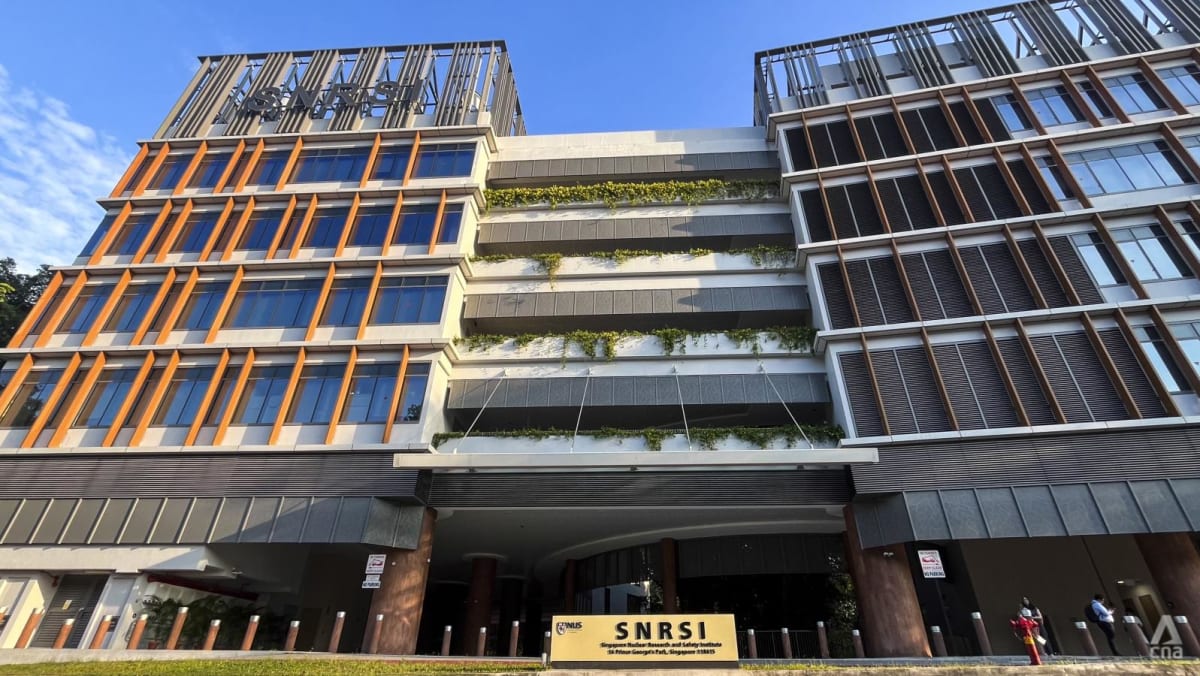SINGAPORE: A key institute on nuclear energy research was boosted with a S$66 million (US$52 million) grant as it unveiled its new premises at the National University of Singapore (NUS) on Friday (Jul 11).
With the grant, the Singapore Nuclear Research and Safety Institute (SNRSI) will expand its research into nuclear safety, NUS and the National Environment Agency NEA) said in a joint media release.
The institute now has a 12,900 sqm building located at 16 Prince George’s Park, which is part of NUS’ campus.
Singapore has yet to make a decision on the deployment of nuclear energy, with Prime Minister Lawrence Wong saying during Budget 2025 that the government will study the potential deployment of nuclear power in Singapore and take further steps to systematically build up capabilities in this area.
He noted steps taken in this aspect, including agreements signed between Singapore and the US on civil nuclear cooperation.
Singapore has also announced plans to build a pool of about 100 nuclear energy experts in the medium to long run.
While thought to be unfeasible for Singapore in the past, nuclear technology has since advanced and small modular reactors (SMR) present a viable option for the land-scarce country, as they are a fraction of the size of conventional nuclear reactors and are safer.
Singapore is monitoring the progress of SMR and other advanced nuclear technologies as possible energy options for the future.
NUCLEAR SAFETY A REGIONAL PRIORITY
Attending the launch of the new building on Friday, Chairman of National Research Foundation Heng Swee Keat said that the S$66 million will be committed to nuclear safety research over two-and-a-half years, starting from December last year, under the Research, Innovation and Enterprise (RIE) 2025 plan.
“As we draw up our RIE2030 plan, nuclear safety will also remain a key priority, given its strategic imperative for Singapore and the region,” Mr Heng said.
Early on, Singapore decided to build its capability in understanding nuclear energy and safety for two key reasons, Mr Heng added.
Nuclear technology will continue to evolve and Singapore must have the ability to evaluate options as technology progresses. Singapore must also be able to respond effectively should there be a regional radiological emergency.
Mr Heng, the former deputy prime minister who retired from politics in the General Election 2025, noted that countries within the region were considering nuclear energy as part of their energy portfolio.
“While no countries in ASEAN (Association of Southeast Asian Nations) have an operational nuclear plant yet, some have announced plans for deployment, such as the Philippines by early 2030s and Indonesia by 2040,” said Mr Heng, adding that Malaysia and Indonesia have experience in the technology and have operated research reactors for some time.
He said the “operating contexts” of neighbouring countries were different from Singapore in terms of geography and exposure to natural hazards among other factors.
Given the potential diversity of nuclear technologies that may be deployed, the expertise Singapore develops in the area will contribute to regional efforts in developing “robust safe and secure frameworks and norms,” Mr Heng said.
“Capability building will help us understand the implications of nuclear developments in the region and ensure that we are prepared if our neighbours choose to deploy nuclear energy.”
SNRSI’s expanded research scope is part of Singapore’s efforts to strengthen its capabilities to better understand and assess nuclear technologies and safety.
Its core research includes reactor safety, how radioactive materials can spread in the environment, the impact of radiation on living organisms and nuclear policy.
